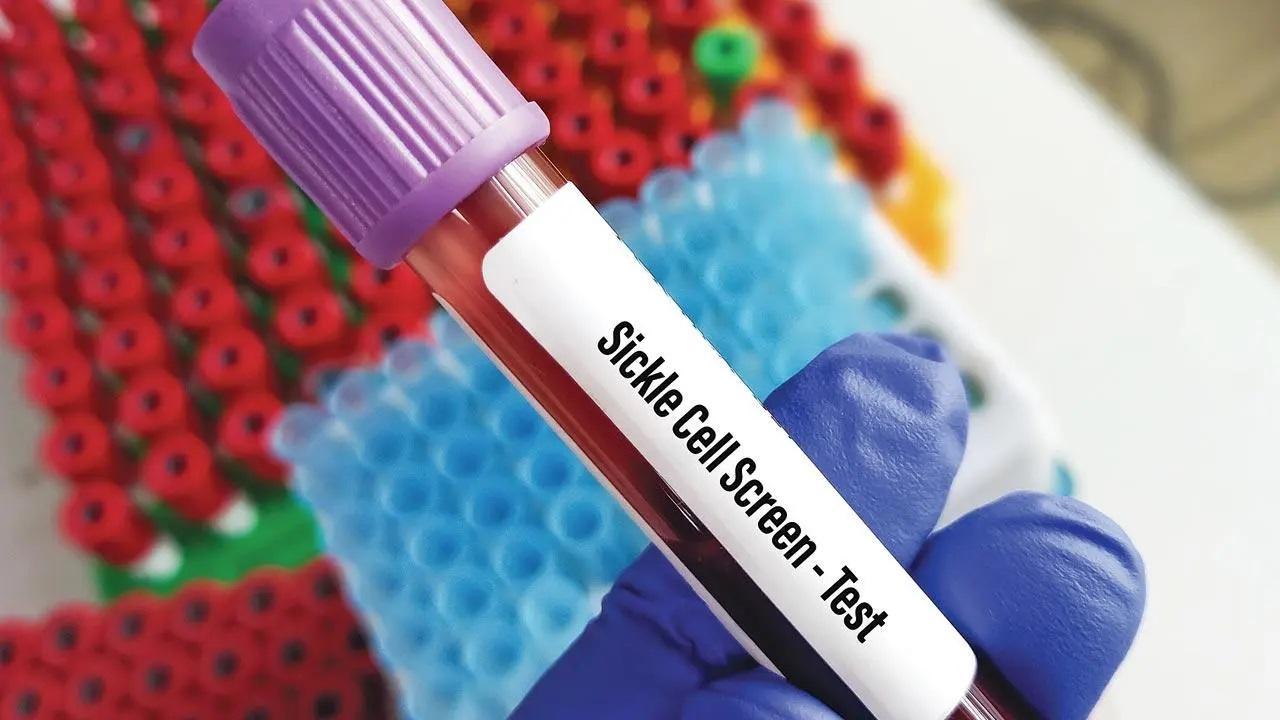According to the National Family Health Survey 5 (NFHS-5, 2019-21), 25 per cent of men (aged 15-49 years) and 57 per cent of women (aged 15-49 years) suffer from anaemia

Image for representational purpose only.
Anaemia is a very common yet preventable threat among girls and women in India, said health experts on Sunday.
ADVERTISEMENT
A deficiency of healthy red blood cells or haemoglobin needed to carry oxygen to the body's tissues raises the risk of anaemia. The condition is more common among women and girls. Lack of a proper iron-rich diet, particularly among women in their reproductive age can result in tiredness, weakness, and shortness of breath, the experts noted.
According to the National Family Health Survey 5 (NFHS-5, 2019-21), 25 per cent of men (aged 15-49 years) and 57 per cent of women (aged 15-49 years) suffer from anaemia.
"Anaemia is a very common and another rampant problem in Indian ladies, especially, due to intake of a diet low in iron and sometimes, it is genetically determined also. A vegetarian diet is quite low in iron and hence, supplements are necessary,” Dr M. Wali, Senior Consultant, Department of Medicine, Sir Ganga Ram Hospital said.
"Pregnancy increases the requirement of iron and also lactation, so these two conditions are particular to the females," he added.
The doctor further noted that anaemia is prevalent in both rural and urban women in India.
"Most Indian urban women who are dieting to reduce weight become deficient and rural women because of hard work, increased requirements, increased loss of the menstrual blood due to infection or otherwise repeated childbirth, so all these causes lead to lack of blood or anaemia," Dr Wali said.
The NFHS- data shows that anaemia is also highly prevalent among young adolescent boys (31 per cent), and adolescent girls (59 per cent) aged between 15 and 19 years, as well as in pregnant women (52.2 per cent) between 15 and 49 years, and also in small children (67 per cent) aged between 6 months and below 5 years.
Common indicators of anaemia include fatigue, pale complexion, breathlessness, dizziness, and cold extremities.
"Anaemia poses a significant health challenge in India, especially for women as they are more prone to lower haemoglobin levels owing to their distinct physiological requirements, including menstrual and pregnancy-related blood loss," Dr Rahul Bhargava, Principal Director & Chief BMT, Fortis Memorial Research Institute, Gurugram, told IANS.
Importantly, the health experts pointed out that the condition progresses slowly and discreetly, and is difficult to detect. The symptoms also tend to appear late. They advised eating foods rich in iron or taking supplements.
"Anaemia is very difficult to detect, most of the time it is slowly developing. Symptoms like breathlessness (an important symptom), chest pain (sometimes mistaken as heart pain), difficulty in pregnancy, palpitation, headache, and easy fatigability appear very late," Dr Wali said.
"Many women quietly battle anaemia -- a preventable threat in India. By promoting a balanced diet rich in iron, advocating for accessible iron supplements available through government systems, and emphasising regular screening, we can empower women to combat anaemia and embrace healthier lives together," Dr Ameet Babre, National Programme Manager at Nutrition International, told IANS.
The most effective preventive measures against anaemia involve adopting an iron-rich diet, which includes lean meats, poultry, fish, legumes, tofu, leafy greens like spinach and kale, fortified cereals, and nuts, Dr Bhargava said.
Fruits like guava, banana, figs, and pomegranate may also help combat anaemia.
This story has been sourced from a third party syndicated feed, agencies. Mid-day accepts no responsibility or liability for its dependability, trustworthiness, reliability and data of the text. Mid-day management/mid-day.com reserves the sole right to alter, delete or remove (without notice) the content in its absolute discretion for any reason whatsoever.
 Subscribe today by clicking the link and stay updated with the latest news!" Click here!
Subscribe today by clicking the link and stay updated with the latest news!" Click here!







